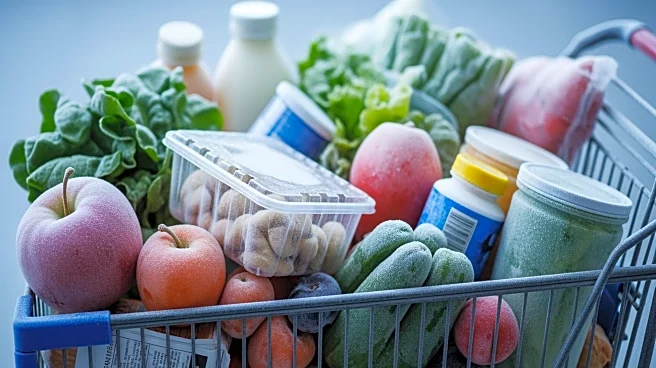What's Happening?
The Trump administration has frozen funding for the Supplemental Nutrition Assistance Program (SNAP), affecting food access for approximately 42 million Americans. This decision has had immediate repercussions
for small grocers and convenience stores, which rely heavily on SNAP benefits for their revenue. Etharin Cousin, former director of the United Nations World Food Program, emphasized that SNAP is not only a social safety net but also a local economic engine, with benefits flowing directly into neighborhoods, stores, and community jobs. The U.S. Senate has passed legislation to reopen the federal government and replenish SNAP funds, but the U.S. House of Representatives has yet to consider the bill, leaving the resumption of SNAP payments uncertain.
Why It's Important?
The suspension of SNAP benefits has significant implications for both recipients and small businesses. SNAP recipients, who redeemed over $96 billion in benefits in 2024, are facing increased hardship, with many turning to food banks and reducing their spending. Small grocers and convenience stores, which receive a substantial portion of their revenue from SNAP, are experiencing decreased sales and financial strain. This situation highlights the critical role of SNAP in supporting local economies and underscores the vulnerability of small businesses operating on slim profit margins. The delay in SNAP payments could lead to job losses and reduced economic activity in affected communities.
What's Next?
The future of SNAP benefits depends on the actions of the U.S. House of Representatives, which must consider the Senate-passed legislation to reopen the government and restore SNAP funding. If the government reopens, SNAP payments may resume, alleviating some of the financial pressures on recipients and small businesses. However, the uncertainty surrounding the legislative process means that stakeholders, including grocers, convenience stores, and SNAP recipients, must continue to navigate the challenges posed by the funding freeze. Advocacy and community support may play a crucial role in addressing immediate needs and influencing policy decisions.
Beyond the Headlines
The SNAP funding freeze raises broader questions about the intersection of social welfare programs and economic stability. It highlights the ethical considerations of cutting essential services for vulnerable populations and the potential long-term impacts on community resilience. The situation also underscores the importance of government accountability and the need for effective policy solutions that balance fiscal responsibility with social equity. As the debate over SNAP funding continues, stakeholders may need to explore innovative approaches to support affected communities and ensure sustainable economic growth.









